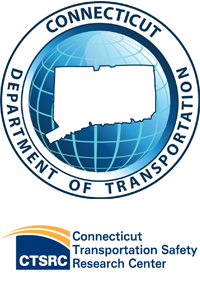
A May 2012 assessment of Connecticut's Crash Data Improvement Program (CDIP) was the impetus that spurred the Connecticut Department of Transportation’s (CTDOT) Crash Data and Analysis and Highway Safety Offices, together with the University of Connecticut (UConn) School of Engineering, to collaborate on a landmark effort to improve the quality and accessibility of the state’s crash data. With a new version of the Model Minimum Uniform Crash Criteria (MMUCC) likely to be released in 2017, and with states being encouraged to map their crash databases to MMUCC, the time was right to look toward modernizing the way in which the data were collected and reported. Knowing that the existing paper-based crash reporting system was no longer sustainable, the CDIP focused on building crash data collection and management tools resulting in a statewide MMUCC-based fully electronic reporting system that provides real-time, accurate and complete crash data to all highway safety users.
The project demonstrated a highly effective Department of Transportation/university partnership model featuring a multidisciplinary interagency project team, facilitated and supported by a dedicated “crash data champion." In addition, the team sought input from and developed a collaborative relationship with law enforcement and records management system vendors. The project was accomplished in large part with Section 154 transfer funds.
Among the tools developed are a fillable PDF crash report form, MMUCC validation and edit rules, a comprehensive six-hour MMUCC training curriculum, a suite of IT management tools and a data repository capable of mapping, visualizing and analyzing MMUCC data. This was all accomplished within the framework of a partnership between the Connecticut Department of Transportation and the University of Connecticut. As a result of this project, crash report processing times have been reduced from 16 months to two weeks, and the number of errors that have to be manually corrected have dropped to just 1 percent of all MMUCC reports. All of these tools are easily transferable to other states, and NHTSA is using the technical specifications to help develop future MMUCC tools at the national level. The awards committee praised the project’s organized approach, process, execution, and ability to be replicated in other states.
